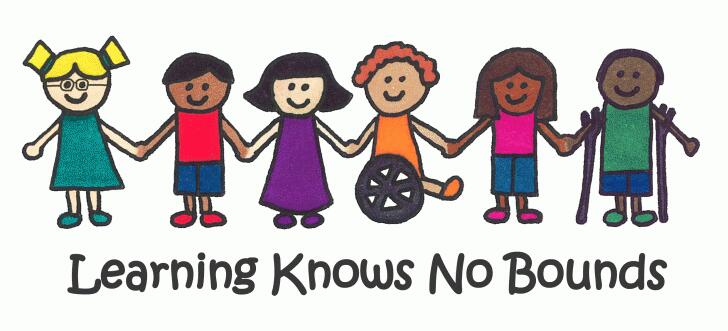Office of Student Services, Special Education
Christine Panarese, Ed.D. , Director of Student Services
Special Education Department
250 Pembroke Street,
Kingston, MA 02364
Telephone: 781-585-4382
Fax: 781-585-8992
DIVERSITY, EQUITY AND INCLUSION
Welcome to the Silver Lake Regional and Union #31 Special Education Department website.
The Office of Student Services and Special Education in partnership with our families seeks to provide each student with a disability a comprehensive, specialized program of instruction and/or related services that is tailored to each student’s individual and unique needs in the Least Restrictive Environment (LRE).
The Office of Student Services and Special Education ensures that students are provided with opportunities for meaningful learning experiences in the general education curriculum using a provision of supports, services, accommodations and modifications as outlined in student’s Individualized Education Programs (IEPs) or 504 Accommodation Plans. By providing a high quality, continuum of learning environments, all students with disabilities receive a free and appropriate education designed to meet their specific educational and social emotional needs in the least restrictive environment. The District offers student learning environments that range from a fully inclusive classroom setting to substantially separate classroom settings with embedded inclusion opportunities to ensure each student with a disability has the opportunity to learn alongside their nondisabled peers.
In addition to the oversight for the implementation of students’ IEP Processes, the Office of Student Services and Special Education monitors the design and implementation of 504 Education Plans. Section 504 of the Rehabilitation Act of 1973 is a federal law that requires the provision of learning and classroom accommodations for students who have an identified disability to ensure their access to a free, appropriate public education (FAPE) and in the life of the school.
All students learn best when they feel safe and supported in school, both physically and emotionally. The Silver Lake School District ensures educators utilize the most effective, research-based practices to foster a safe learning climate and maximize student engagement and achievement. Our educators are committed to teaching students the skills that will help them achieve in school as well as in life.
The Office of Student Services and Special Education partners with all school and District personnel in the implementation and monitoring of the Multi-Tiered System of Support (MTSS) and Interventions. MTSS is a data-driven process that serves as the special education pre-referral process. MTSS is a research-driven, systematic process that provides strategic academic, behavioral and social emotional tiered interventions that embeds progress monitoring data to meet the learning needs of students with and without a disability. The MTSS processes are mandated by the Massachusetts Department of Elementary and Secondary Education.
As part of our effort to provide information regarding resources for families, there are links to websites listed below.
Parent/Guardian Procedural Safeguards
Massachusetts Special Education Laws
Disability Self-Advocacy Resources
Multi-Tiered Systems of Support (MTSS)
Least Restrictive Environmnt (LRE)
CHILD FIND
All children with disabilities ages 3 through 21 residing in the State, including children with disabilities who are in foster care, homeless, homeschooled, or attending private schools, regardless of the severity of their disability, and who are in need of special education and related services, must be identified, located, and evaluated. Child find must include children who are suspected of being a child with a disability and in need of special education, even if they are advancing from grade to grade. For more information about federal child find requirements, please see the United States Department of Education’s Office of Special Education and Rehabilitative Services (OSERS), Return to School Roadmap: Child Find Under Part B of the Individuals with Disabilities Education Act (Aug. 24, 2021)(Child Find guidance).IDEA Part B also requires each LEA to “locate, identify, and evaluate all children with disabilities who are enrolled by their parents in private, including religious, elementary schools and secondary schools located in the school district served by the LEA.” In accordance with IDEA regulations, the child find activities for such children must be similar to the child find activities undertaken for the LEA’s public school children. For more information about child find requirements relating to privately enrolled children with disabilities, including homeschooled students.
In addition to federal law, Massachusetts state law requires “the school committee of every city, town or school district” to “identify the school age children residing therein who have a disability,” as well as “diagnose and evaluate the needs of such children, propose a special education program to meet those needs, provide or arrange for the provision of such special education program.” State law also requires that school districts “maintain a record of such identification, diagnosis, proposal and program actually provided.”
It is the responsibility of the Silver Lake Regional School District/Superintendency Union #31 to identify any child who may have a disability who is a resident of the Silver Lake Regional School District / Superintendency Union #31. This includes students who are homeschooled. Please click here for more information.

The Silver Lake Regional School District is committed to the service of all students with and without disabilities to ensure each child reaches their fullest potential in life.
Special Education: The Definition from IDEA 20 U.S.C. § 1400 (2004)
Special education means specially designed instruction, at no cost to the parents, to meet the unique needs of a child with a disability, including—
(i) Instruction conducted in the classroom, in the home, in hospitals and institutions, and in other settings; and
(ii) Instruction in physical education.
(2) Special education includes each of the following, if the services otherwise meet the requirements of paragraph (a)(1) of this section—
(i) Speech-language pathology services, or any other related service, if the service is considered special education rather than a related service under State standards;
(ii) Travel training; and
(iii) Vocational education.
Massachusetts Department of Elementary and Secondary Education Student Disability Definitions
